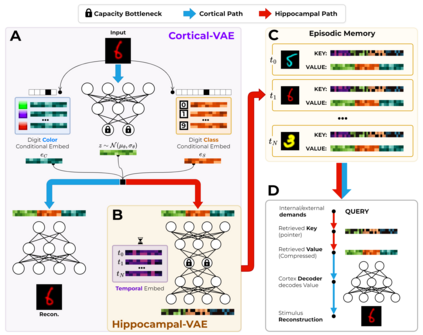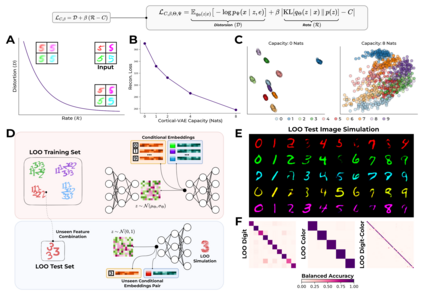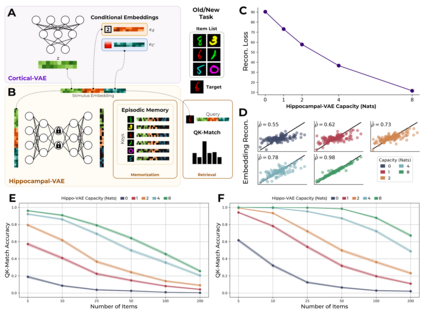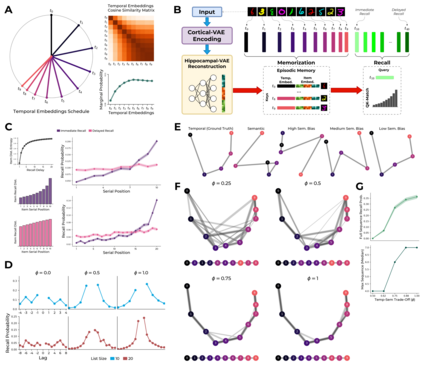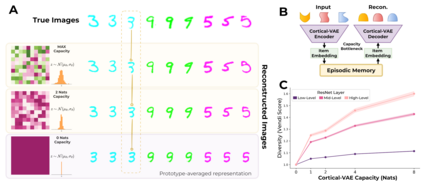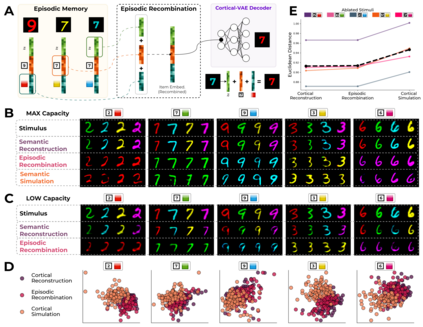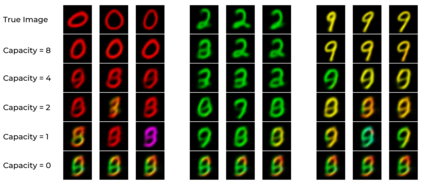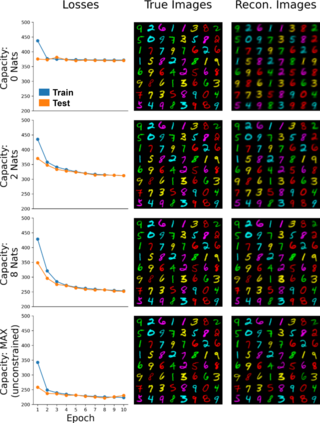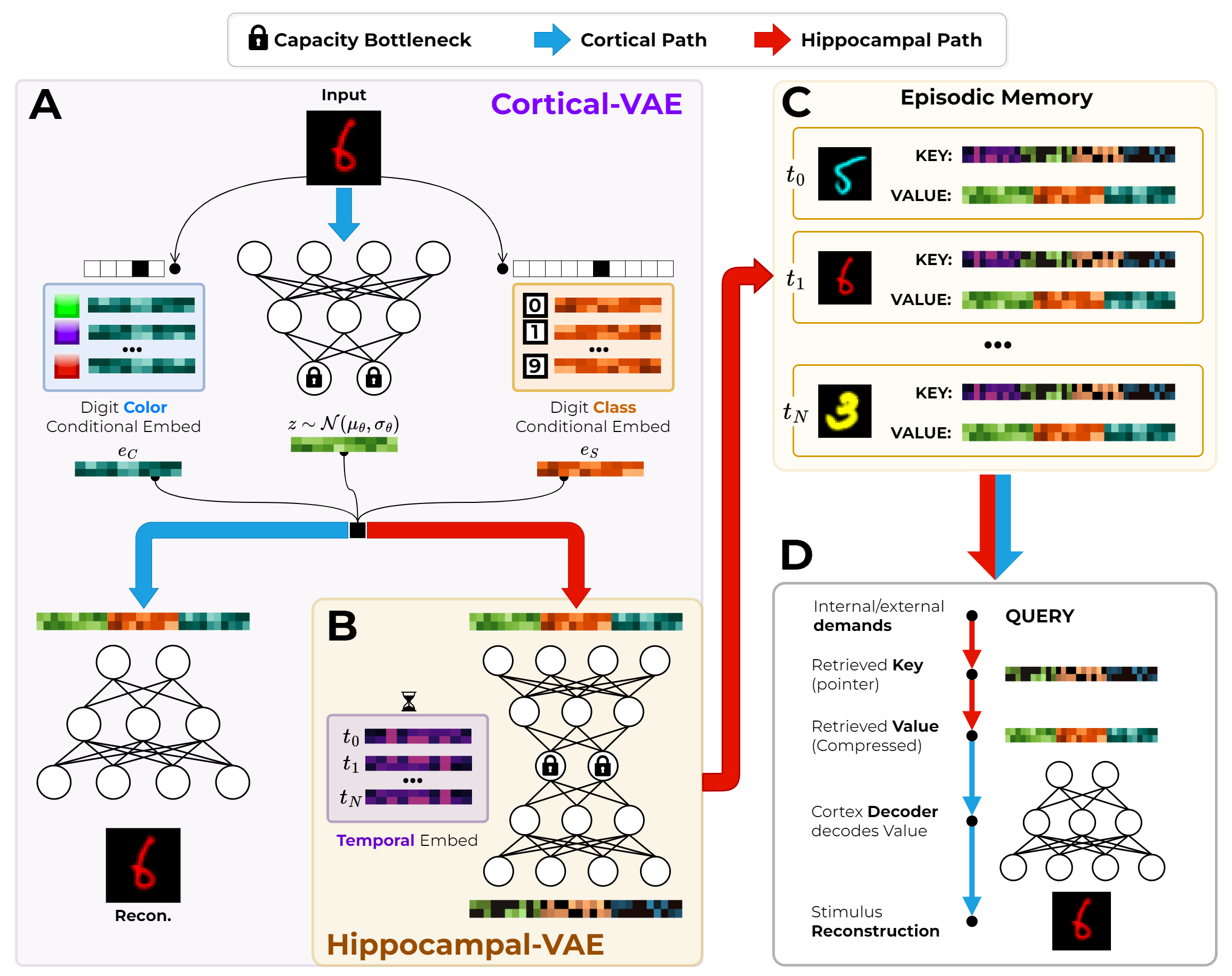A central challenge in cognitive neuroscience is to explain how semantic and episodic memory, two major forms of declarative memory, typically associated with cortical and hippocampal processing, interact to support learning, recall, and imagination. Despite significant advances, we still lack a unified computational framework that jointly accounts for core empirical phenomena across both semantic and episodic processing domains. Here, we introduce the Generative Episodic-Semantic Integration System (GENESIS), a computational model that formalizes memory as the interaction between two limited-capacity generative systems: a Cortical-VAE, supporting semantic learning and generalization, and a Hippocampal-VAE, supporting episodic encoding and retrieval within a retrieval-augmented generation (RAG) architecture. GENESIS reproduces hallmark behavioral findings, including generalization in semantic memory, recognition, serial recall effects and gist-based distortions in episodic memory, and constructive episodic simulation, while capturing their dynamic interactions. The model elucidates how capacity constraints shape the fidelity and memorability of experiences, how semantic processing introduces systematic distortions in episodic recall, and how episodic replay can recombine previous experiences. Together, these results provide a principled account of memory as an active, constructive, and resource-bounded process. GENESIS thus advances a unified theoretical framework that bridges semantic and episodic memory, offering new insights into the generative foundations of human cognition.
翻译:暂无翻译

